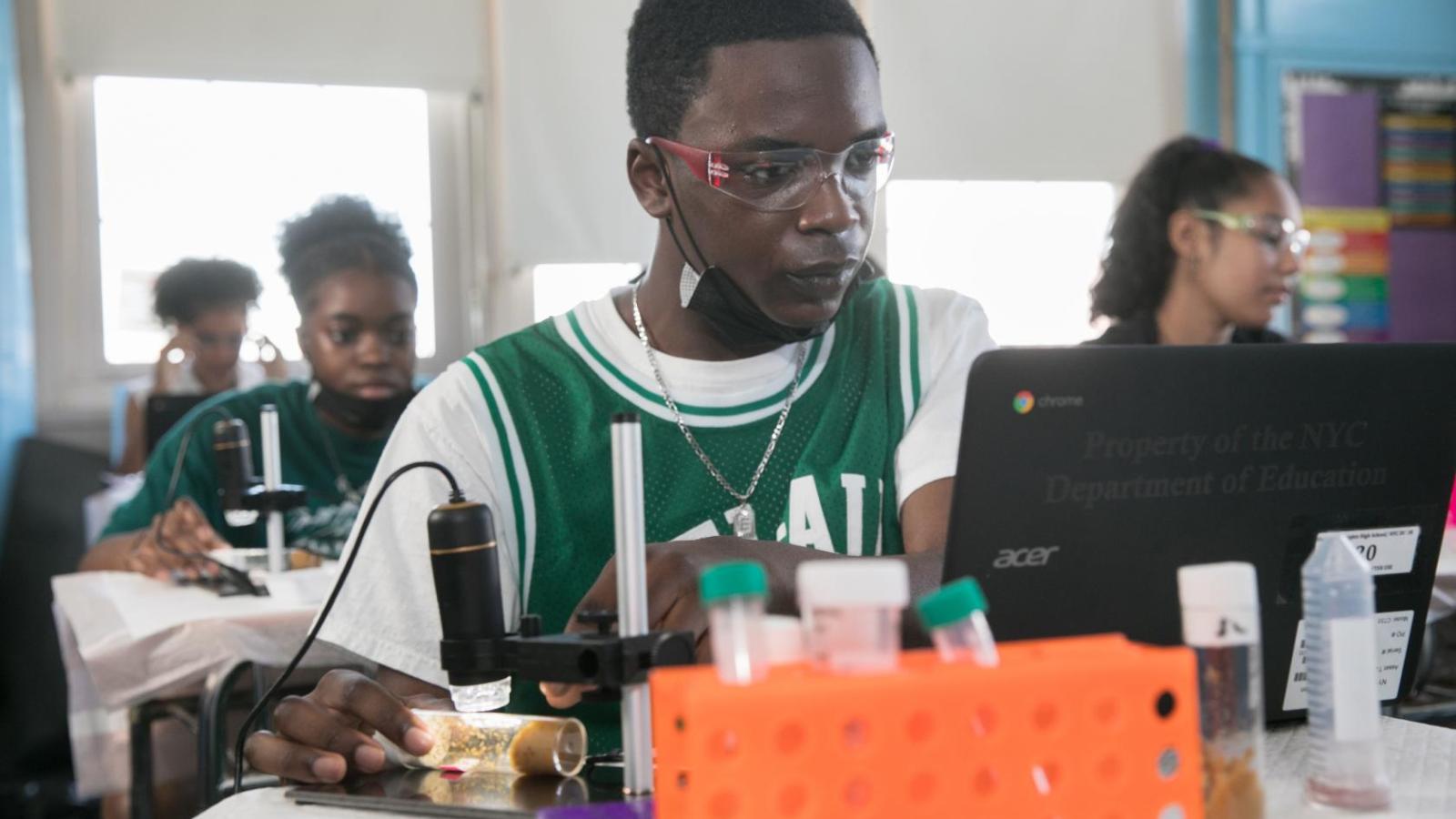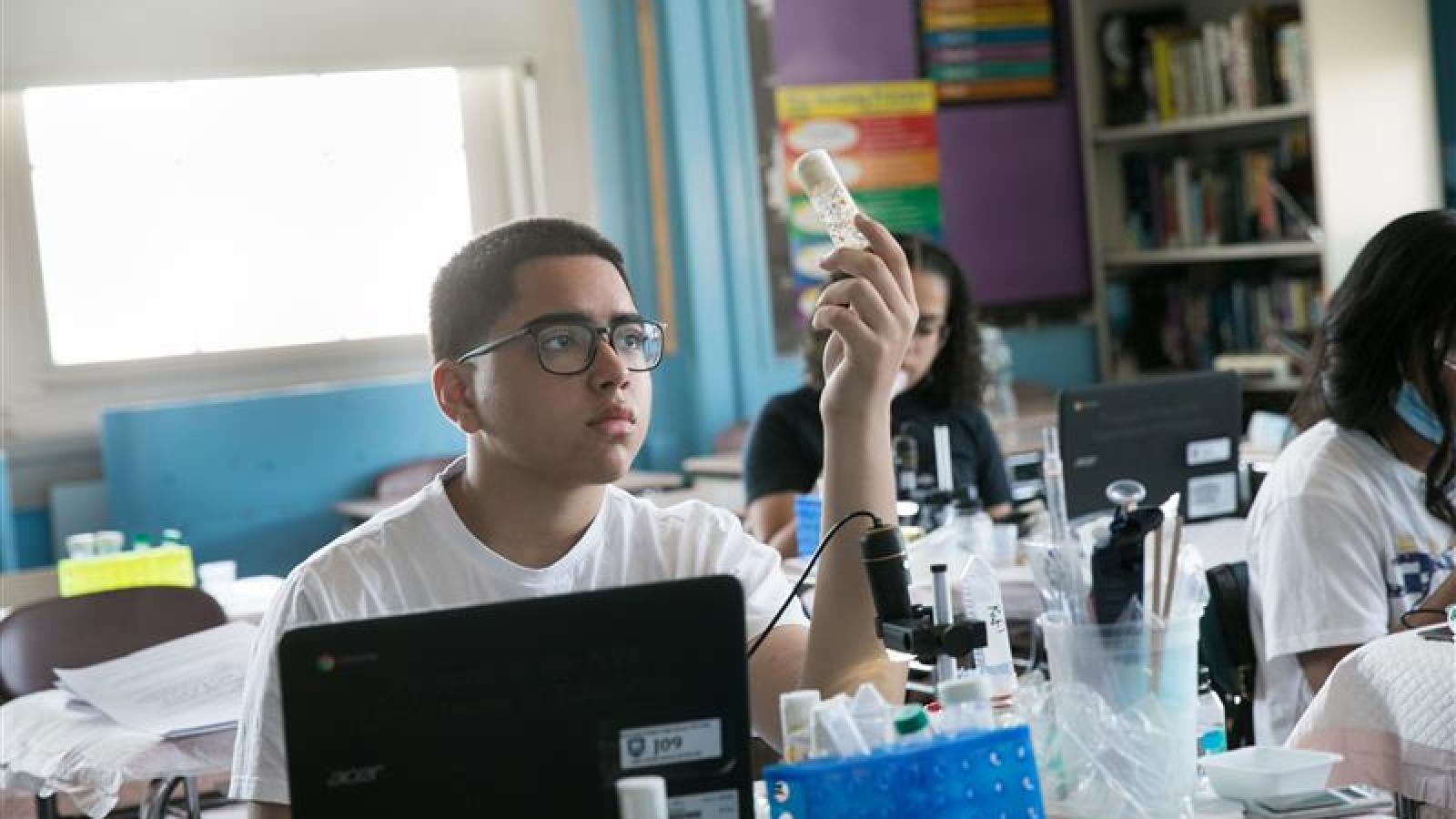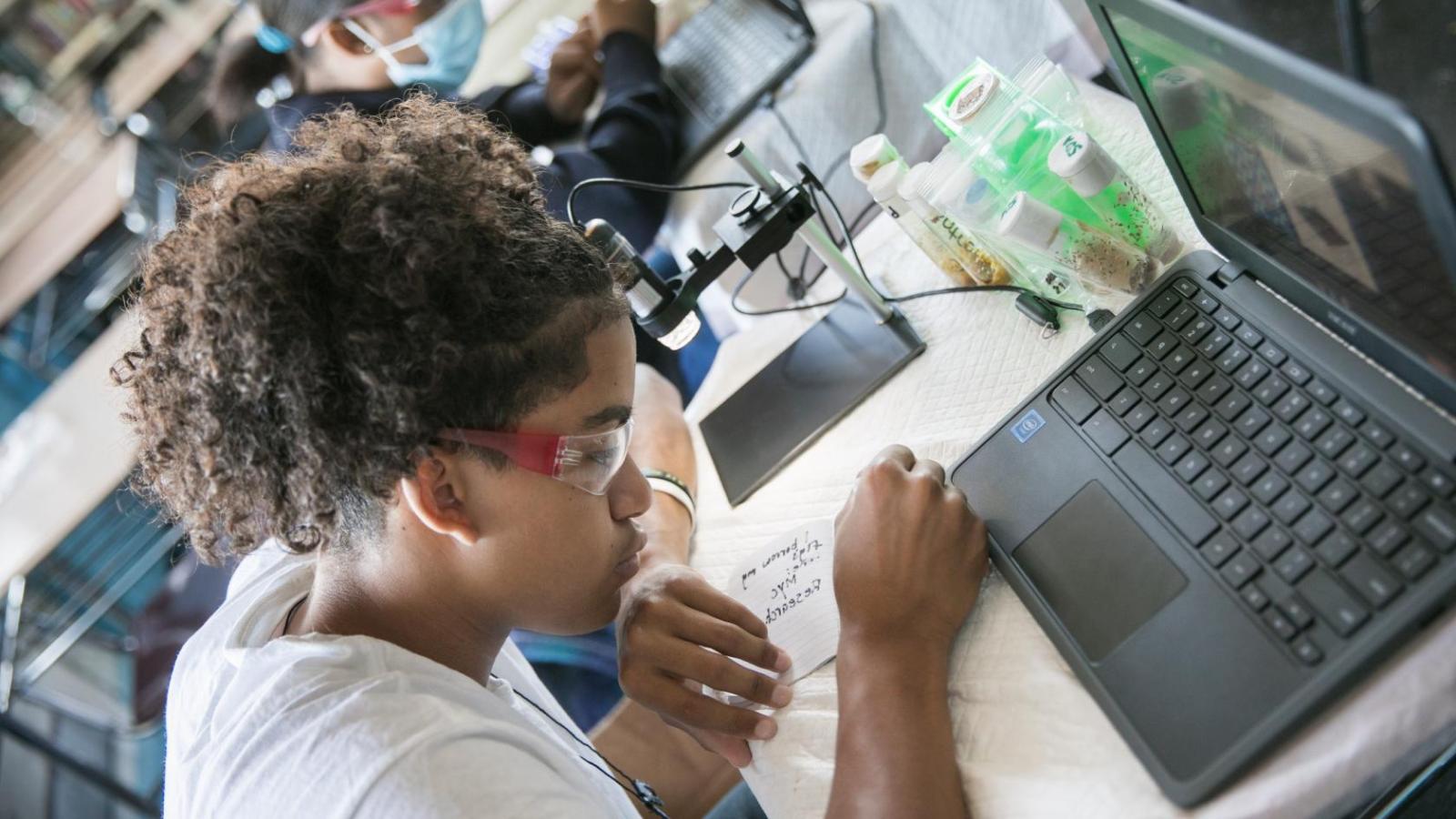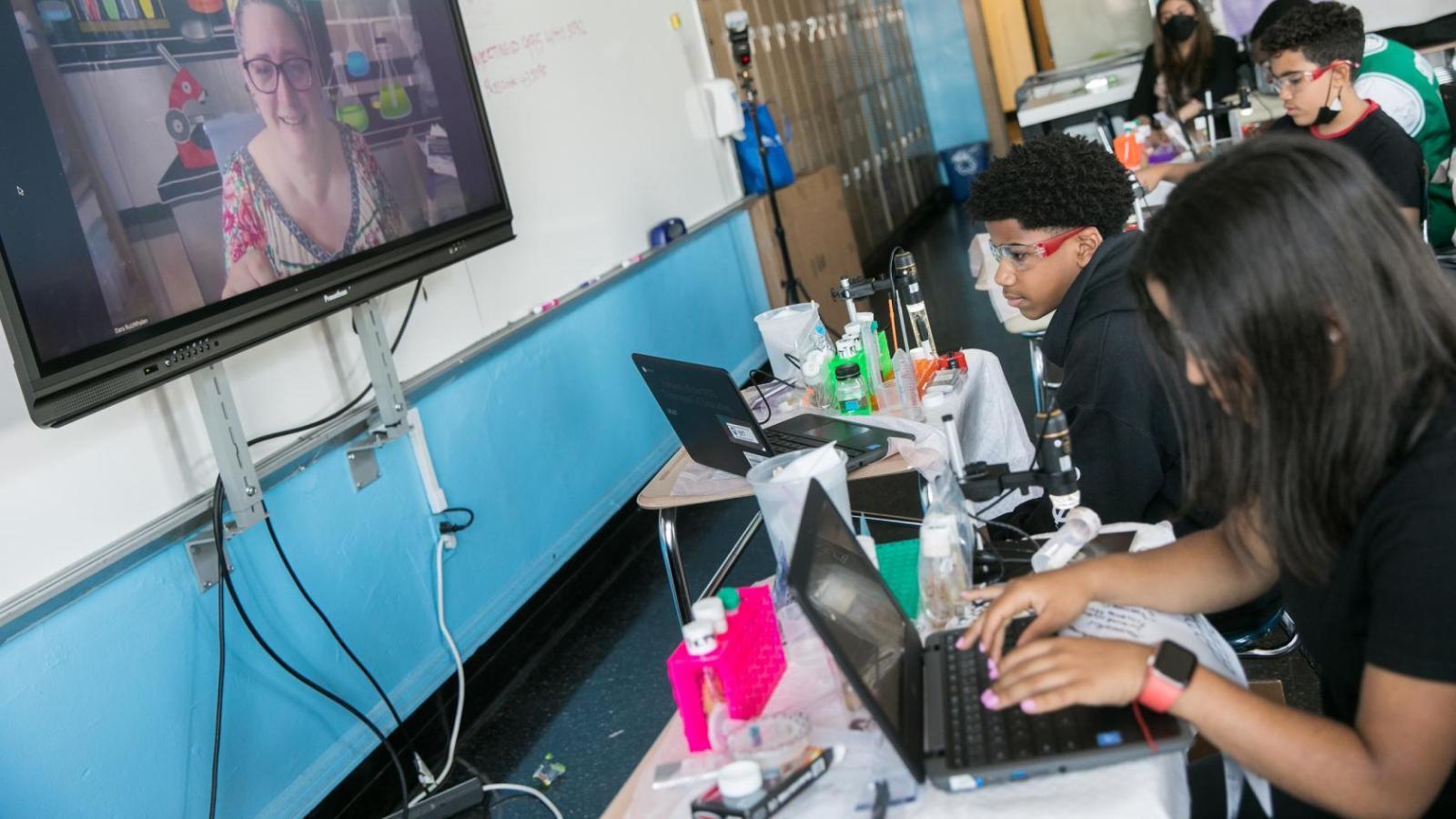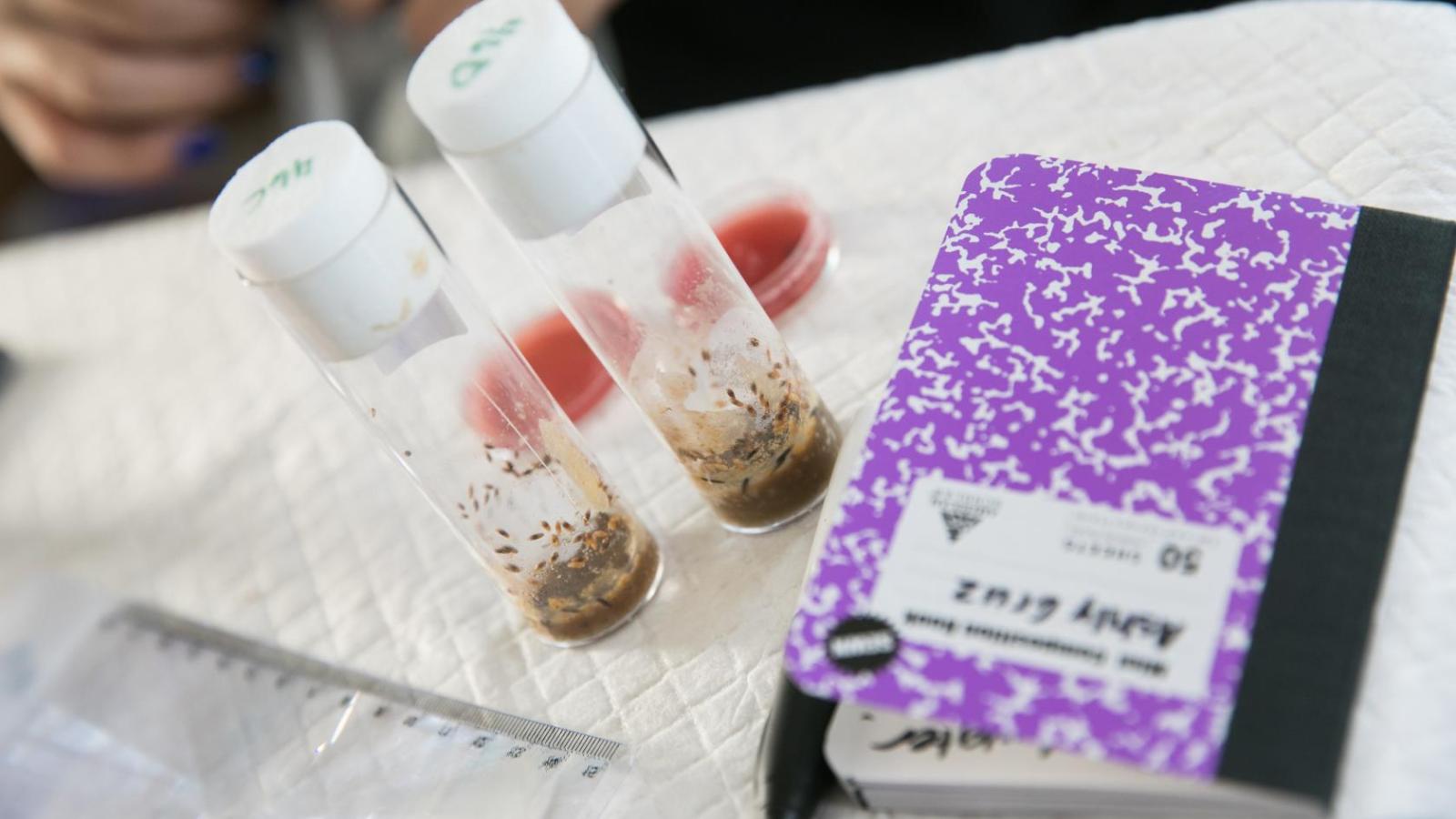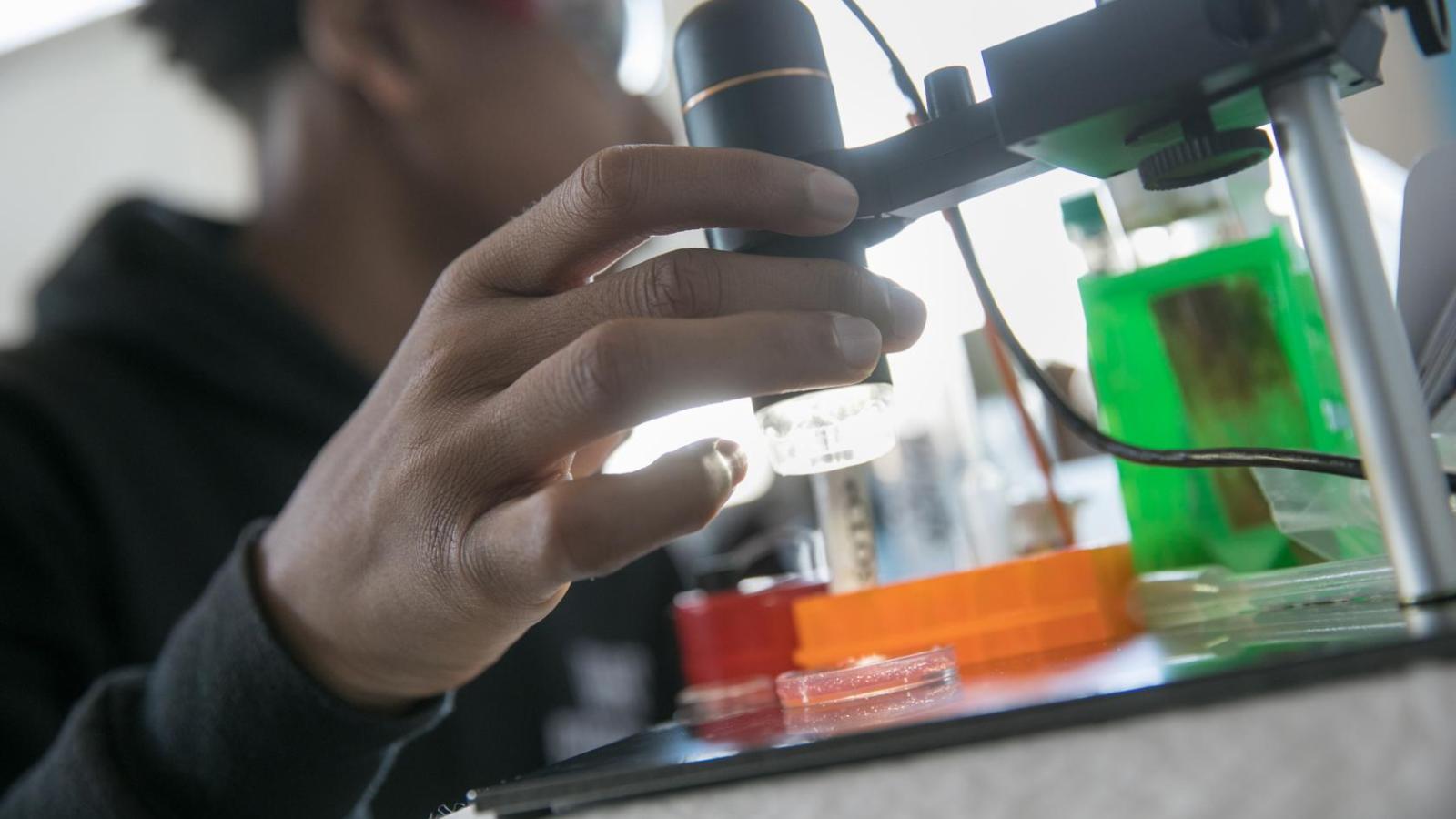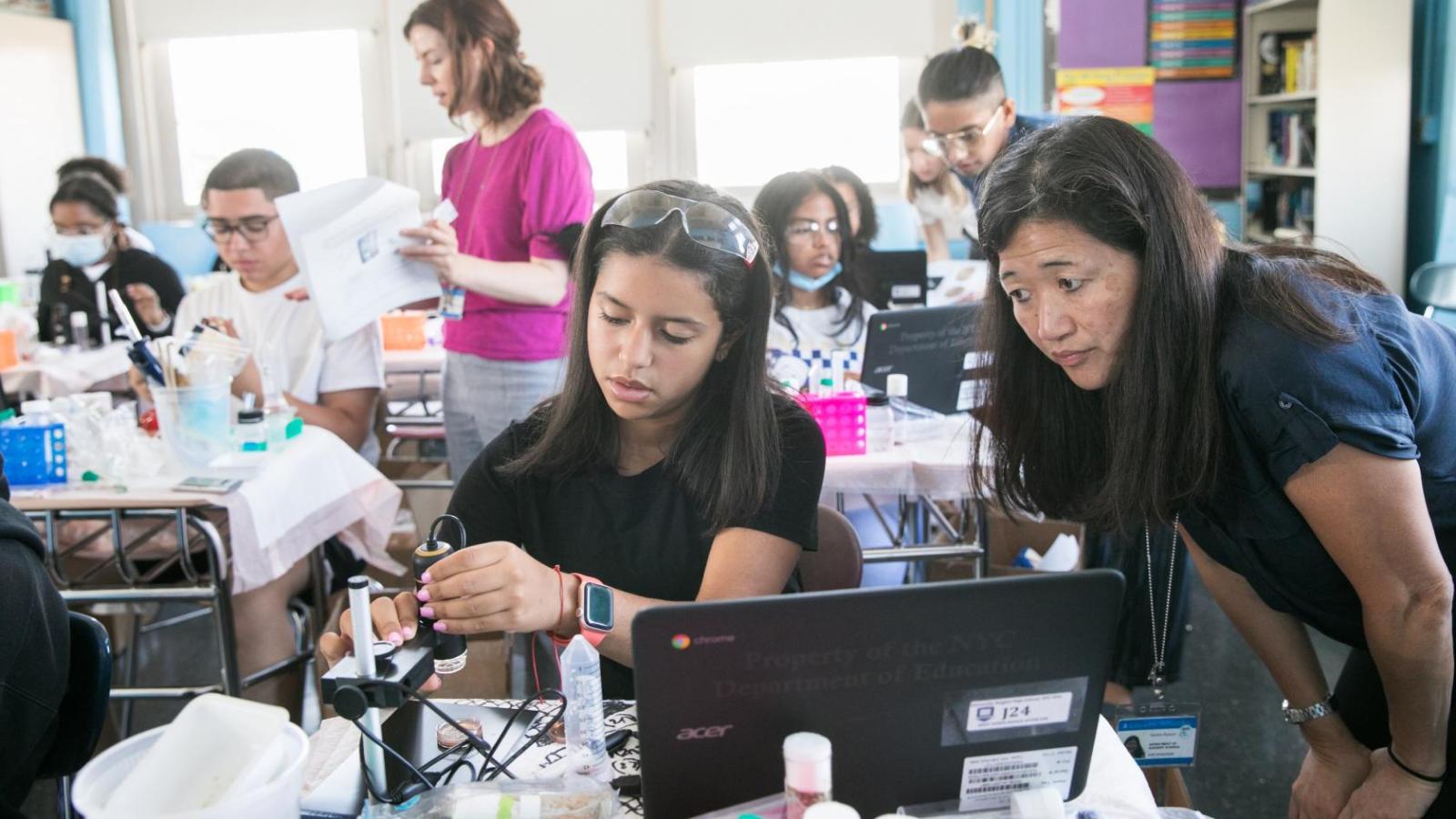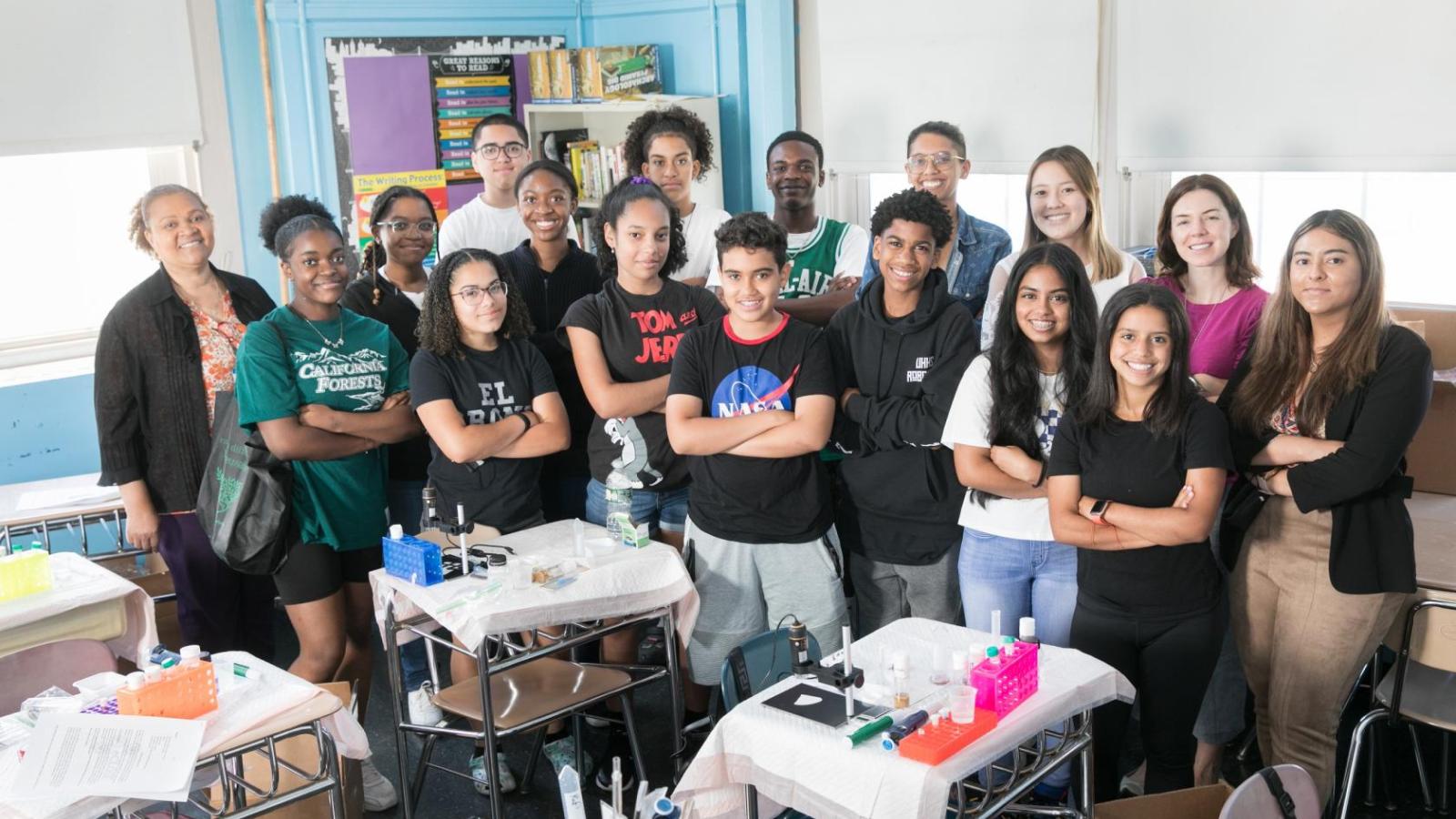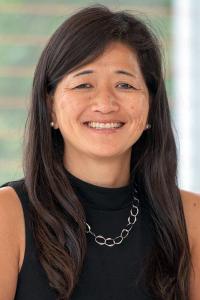
Summer, Science and Drosophila: New Program Shapes Future Scientists
Summer outreach program links local high-school students with hands-on cancer research
The summer kick-off for a group of Bronx high school students involved a lot of pesky bugs and a microscope.
Eighteen sophomores and juniors at University Heights High School in the South Bronx spent a week in June studying the impact of diet and nutrition on tumor growth, using Drosophila, better known as the common fruit fly, as their model organism. The new summer program provides middle and high school students in Columbia University Irving Medical Center’s neighborhoods with hands-on lab experiments to study cancer. The program gives young students direct exposure to an advanced level of research, science and medicine.
In-person classroom experiments were led through virtual lectures with an educational organization called eCLOSE Institute, together with Columbia faculty, students and staff. The new program is part of an initiative by the HICCC to promote and support local middle- and high school students interested in science and medicine but who may not have the opportunity or resources to gain hands-on scientific research or lab experience. The HICCC partnered with eCLOSE, which brings together teacher-scientist teams to provide cutting edge research in the classroom, and with University Heights High School, whose multicultural student body comprise a majority population of Black, Hispanic and first-generation students.
The next generation of physicians and scientists
“I really love science, math and chemistry,” says participant Eliannie Ramirez, a fourteen-year-old rising sophomore at University Heights who also takes part in the school’s robotics team. “This program was a good chance for me to see what it’s really like to take biology lectures and actually do lab research. The experiments were all really fun.” Eliannie has her sights set on medical school to specialize in cardiothoracic surgery.
For Ebube-Chisom Okwuka, 15, another rising sophomore at University Heights, the introduction to scientific tools and lab equipment, including the burette measuring tool and USB microscope, was a highlight.
“After being exposed to numerous scientific lab instruments, I am curious about how contemporary technology is utilized to find better cancer remedies and how modern technology may be enhanced to help scientists find better treatments for other illnesses,” says Ebube, who also codes games and participates in the robotics team. “After the program ended, I became interested in the use of technology in medicine and see myself working in the tech side of the medical field.”
Building a pipeline in science and medicine
Each student worked with a fruit fly science kit provided to them at the start of the week that included microscopes, pipets, mini-balances and other equipment necessary for experiments. The students learned critical lab skills, hypothesis generation, data collection and analysis. They also learned about dilutions, weighing samples and pipetting, as well as how to gender-sort and phenotype their fruit flies. In the fall, the students will gather at the HICCC for a poster session where each student will present their project findings in front of HICCC leadership, faculty and graduate students.
Sandra Ryeom, PhD, associate director of DEI at the HICCC, was instrumental in bringing the eCLOSE partnership to Columbia and aims to increase Columbia’s pipeline of trainees, starting that outreach with middle school.
“The excitement and engagement by the University Heights High School students during this week was inspiring,” says Dr. Ryeom, associate professor of surgical sciences at Columbia’s Vagelos College of Physicians and Surgeons. “Many of these students have reached out to me because they want to continue doing research at the HICCC and are interested in applying to Columbia for undergrad. We will continue to expand this program to other middle and high schools in our local neighborhoods, which will contribute to building the biomedical workforce.”
“Going into this, what we hope to accomplish each time is getting the students really engaged in research, science and medicine,” says Dara Ruiz-Whalen, who cofounded eCLOSE and served as a co-teacher, with Alfonse Bowman, of the new HICCC program.
That was the takeaway for fifteen-year-old sophomore Carlos Jose Cedano Llano who is inspired to learn even more about science and medicine.
“I have always been interested in a career in science and have thought about being an engineer or a computer science engineer,” says Carlos. “This program opened my eyes to medicine and showed me how impactful it can be. It got me even more interested in how medicine works and the impact it can have on people and in cancer.”

